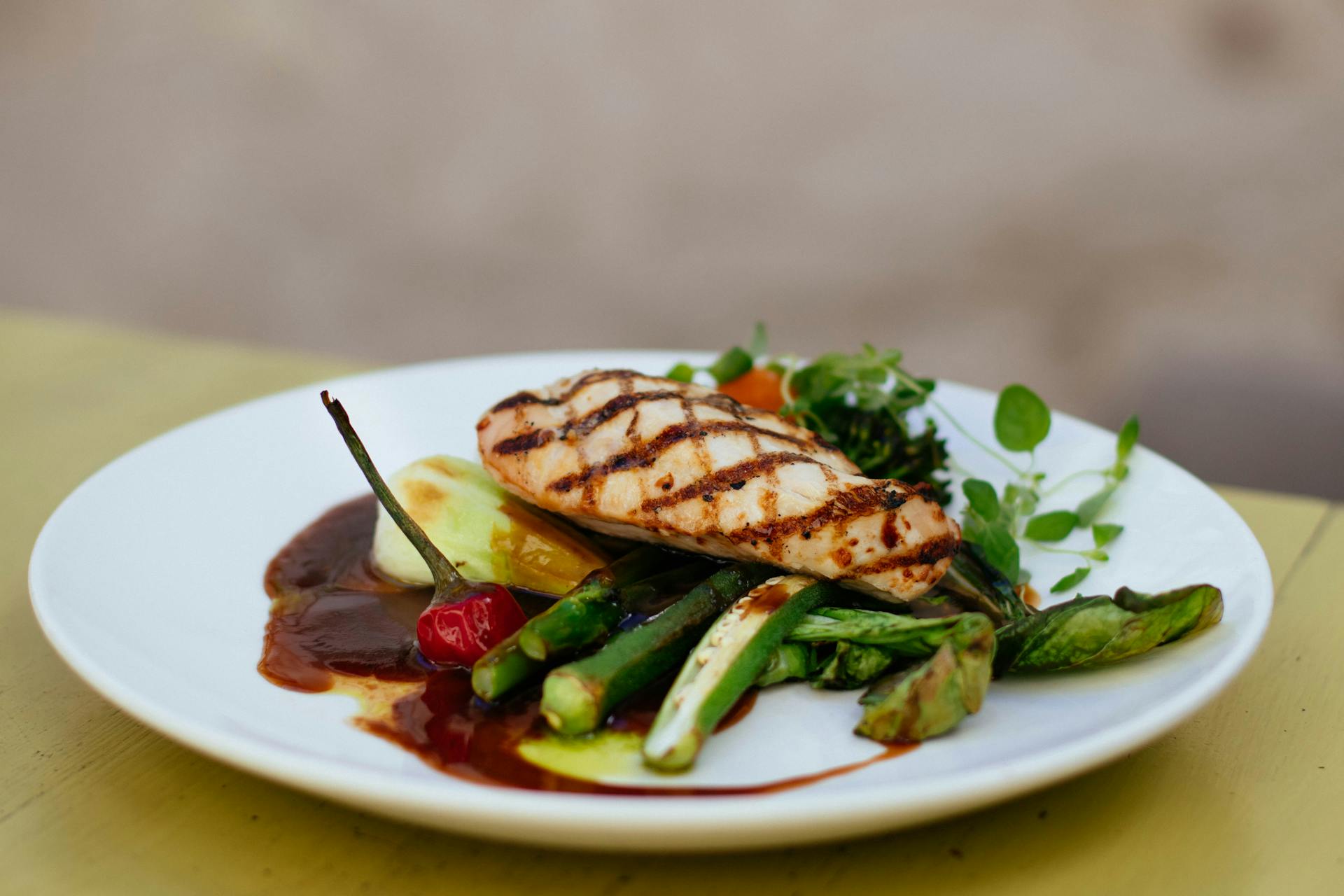Protein Rich Foods To Add To Your Diet
By Alex Soto on 01/03/2025- Save on Pinterest
 Protein is one of the most important nutrients everyone needs in their diet. Protein plays a crucial role in building muscle, repairing tissue, supporting immune health, and producing essential hormones. Protein is important for everyone, from the high-end athlete to children to the elderly. Keep reading to find a few delicious ways to add protein to your diet.
Protein is one of the most important nutrients everyone needs in their diet. Protein plays a crucial role in building muscle, repairing tissue, supporting immune health, and producing essential hormones. Protein is important for everyone, from the high-end athlete to children to the elderly. Keep reading to find a few delicious ways to add protein to your diet. Lean Meats and Eggs
Meat is a great source of protein. By opting for lean meats, you can get add protein to your diet without adding too much cholesterol or bad fat. Lean meats often contain other important nutrients such as iron, healthy fats, potassium, and zinc. If you are looking for lean meats with the most protein, a few recommendations are:- Chicken, preferably grilled - 23g protein per serving
- Turkey - 30g protein per serving
- Beef steak, trimmed - 30g protein per serving
- Eggs
Fish
Just like lean meat, fish offers a way to incorporate protein into your diet while also getting other important nutrients. Along with protein, there are a number of fish that offer omega-3 fatty acids which are great for heart health and healthy brain cell production. Some of the best fish for protein are:- Salmon - 23g protein per serving
- Tuna - 24g protein per serving
- Tilapia - 26g protein per serving
- Sardines - 16g protein per serving
- White Fish
- Mackerel
- Red Snapper
Dairy
Another easy way to add protein to your diet is via dairy products. Dairy often has calcium has well which is essential for strong bones. Some great sources of dairy are:- Milk - 12g protein 1.5 cups
- Greek Yogurt - 20g protein per serving
- Cheese - 9g protein per serving (Varies by type)
Legumes (beans)
Legumes are an amazing source of protein. Most are high in fiber as well. Some of the top legumes for protein are:- Edamame - 24g protein per large serving
- Lima beans - 6g protein per 1/2 cup
- Black Beans - 8g protein per 1/2 cup
- Chickpeas - 10g protein per serving
- Navy beans
Seeds and Nuts
Nuts and seeds are another great source of protein. Many nuts also have healthy fats and some fiber as well. Some of the top nuts and seeds for protein are:- Pumpkin seeds - 9g protein per 1/4 cup
- Almonds - 6g protein per serving
- Chia Seeds - 5g protein per serving
- Peanuts
- Pistachios
- Cashews
Benefits of a Protein Rich Diet
Eating protein provides a wide range of health benefits that are essential for overall well-being. Protein is essential for building and repairing muscle tissue. Consuming enough protein helps stimulate muscle growth and repair. This is particularly important after exercise, as muscles need protein to recover and rebuild. Protein can help you feel fuller for longer, reducing hunger and cravings. This satiety effect can make it easier to manage your calorie intake, ultimately supporting weight loss or weight maintenance goals.Another benefit is that a high-protein diet can slightly boost your metabolism, helping you burn more calories throughout the day. Proteins are vital in the production of antibodies and immune cells, which help protect your body against infections and diseases. By ensuring you get enough protein, you can strengthen your immune system and promote faster recovery when you're sick.
While calcium often gets the spotlight for bone health, protein also plays a critical role in maintaining strong bones. Studies have shown that protein helps improve bone density and reduce the risk of fractures, especially in older adults.
Keratin, collagen, and elastin—important proteins for the health of your skin, hair, and nails—are all made from the amino acids found in protein. A protein-rich diet supports the growth and maintenance of healthy skin, strong nails, and shiny hair.
Conclusion
Incorporating protein-rich foods into your diet is essential to boost your overall health. From lean meats and nutrient-dense beans/legumes to nuts and seeds, there are countless delicious options to help you meet your daily protein needs. By including a variety of these protein-packed foods in your meals, you’ll enjoy both the immediate benefits and the long-term health advantages they offer. Make protein a staple in your everyday diet today!| protein | nutrition | healthy foods